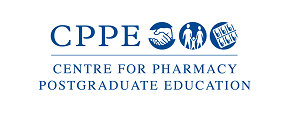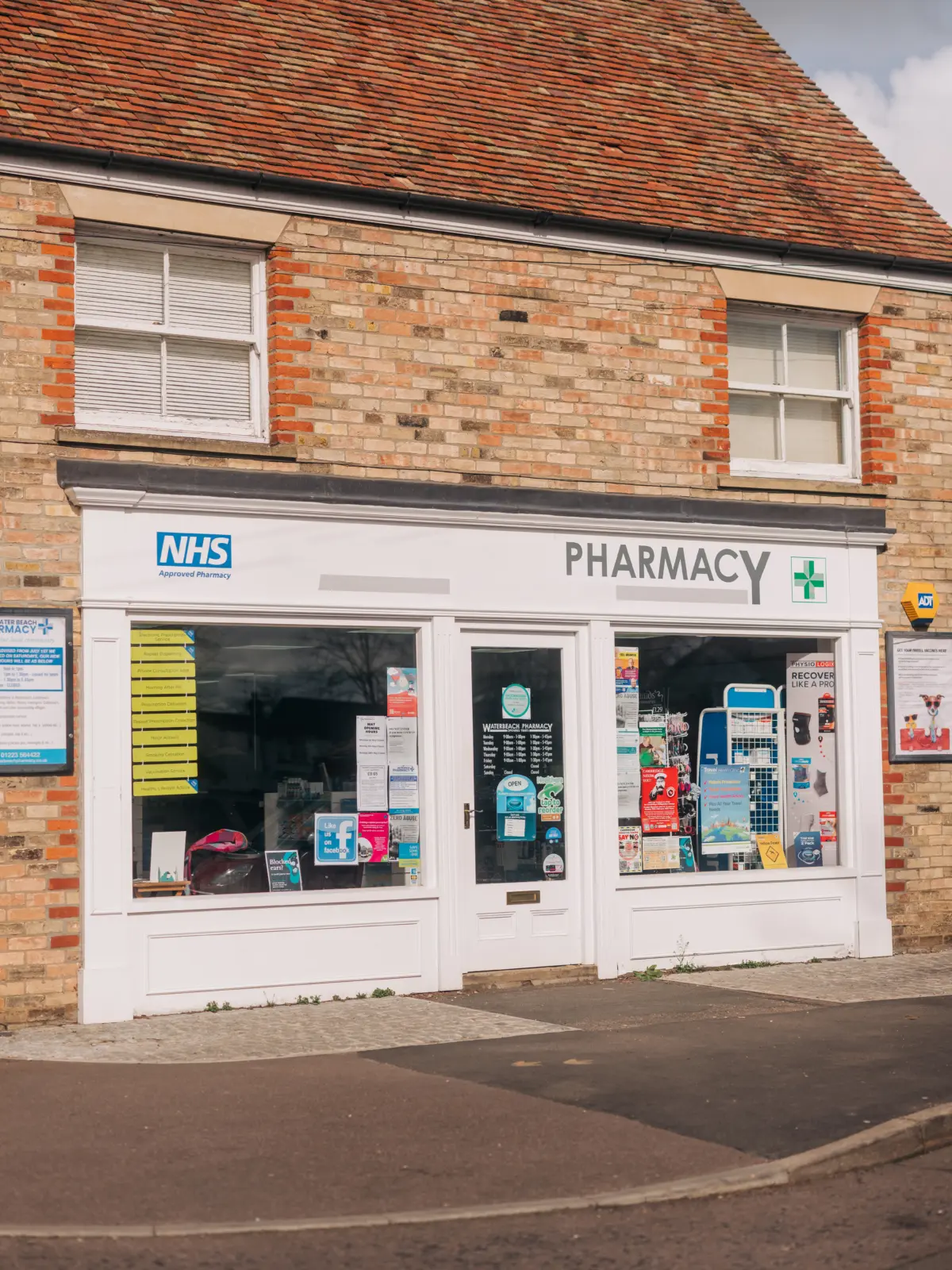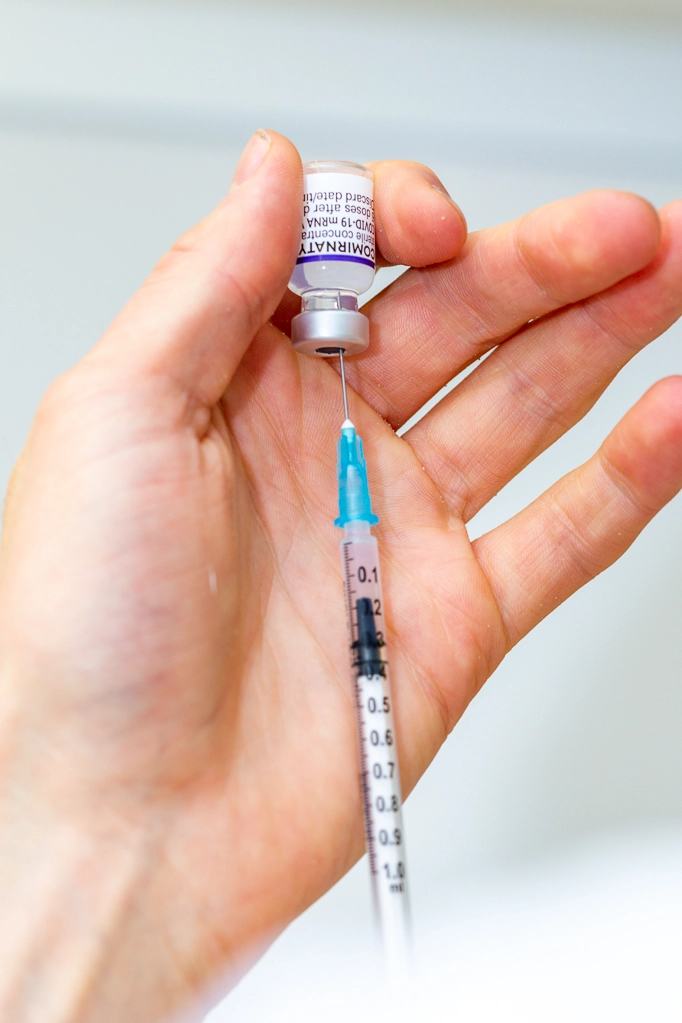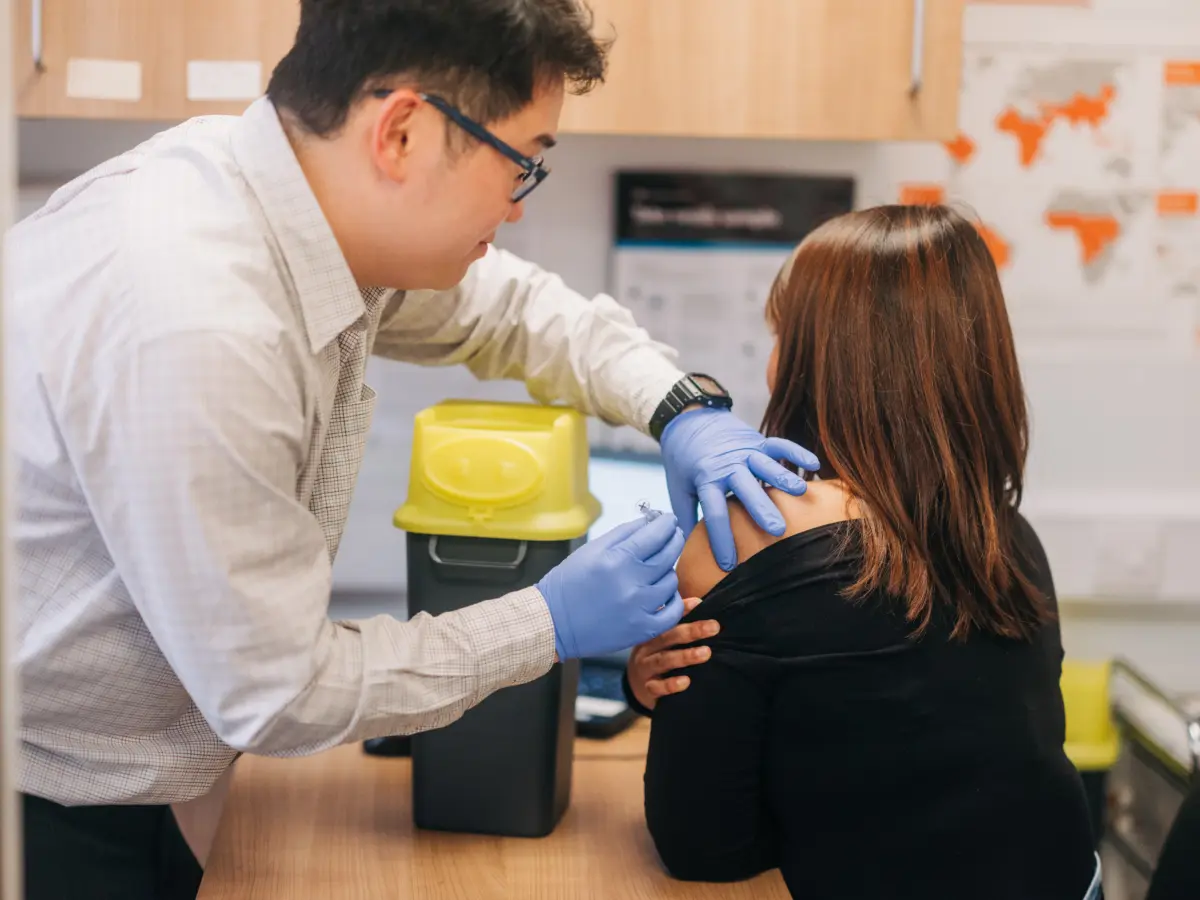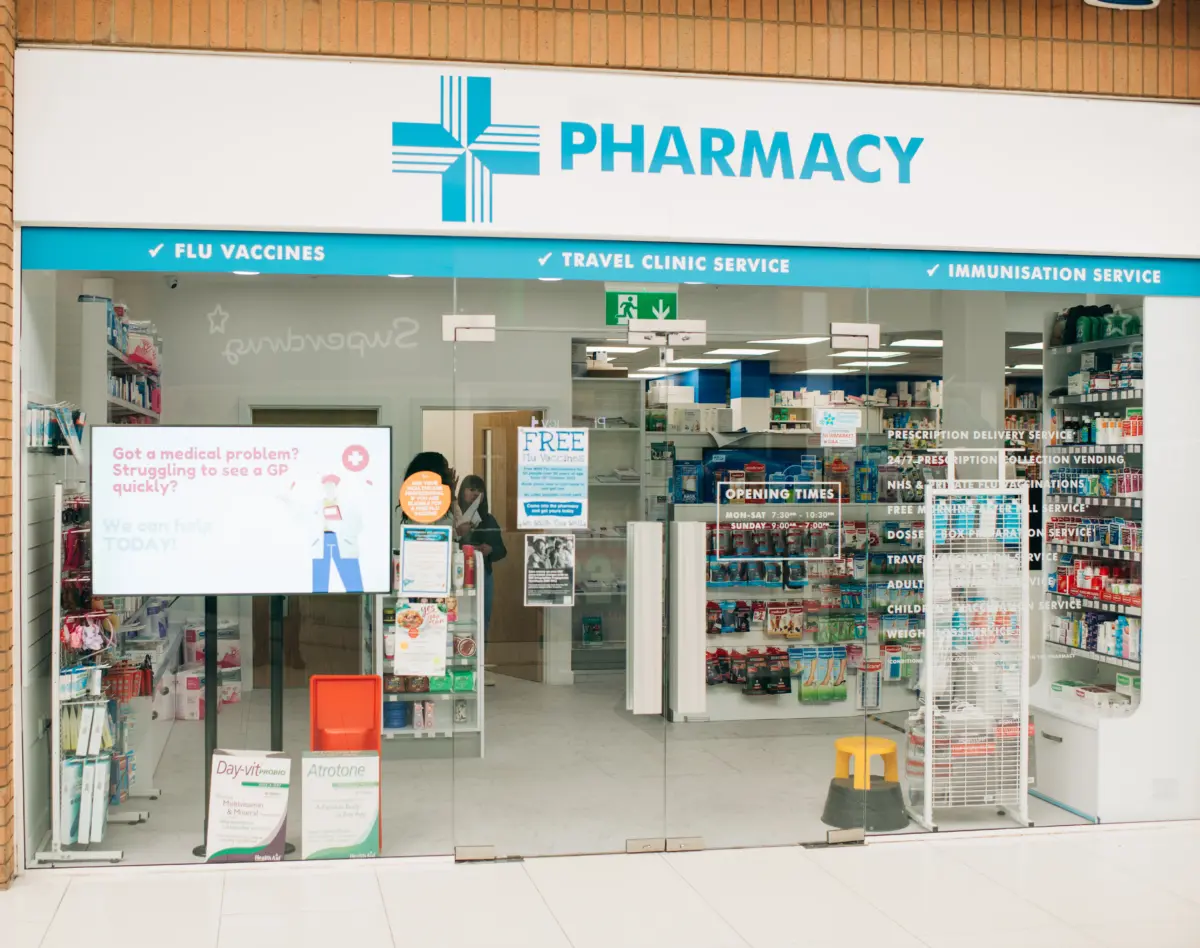Post-payment verification process for community pharmacy services and activity
Published on: 25th September 2017 | Updated on: 18th August 2025
In Autumn 2017, the NHS Business Services Authority (NHSBSA) started undertaking post-payment verification (PPV) of payments to community pharmacy owners for the provision of Advanced services. The initial focus was on the Medicines Use Review (MUR) service, in early 2018, it was applied to the New Medicine Service (NMS) and in October 2019, the NHS Flu Vaccination Advanced Service was included in the scope of the work.
The PPV process involves requesting evidence from a sample of pharmacy owners, to support payment claims they have submitted for pharmacy services or COVID-19 costs over a specified period.
Click on a heading below for more information
Integrated Care Boards are responsible for monitoring the provision of Essential and Advanced pharmaceutical services by pharmacy owners, and with NHS England, have a duty to assure themselves of the quality and probity of activity provided under the Community Pharmacy Contractual Framework; PPV is one way in which this monitoring is undertaken. The NHS Business Services Authority (NHSBSA) Provider Assurance Team undertake PPV at the request of NHS England.
Until the commencement of PPV work by the NHSBSA, this monitoring was the sole responsibility of local NHS England teams; however, in many areas resource constraints limited their ability to perform this work, which resulted in a lack of consistency in how this was carried out across the country.
Following a review of internal audits of NHS England’s operations, the NHSBSA was asked to pilot a national process for parts of the PPV and performance management of Advanced services as part of a six-month proof of concept pilot to establish a centralised approach and to evaluate it’s effectiveness.
This meant NHSBSA began doing some of the work previously undertaken by local NHS England teams; these activities are described as ‘provider assurance’. Taking a standardised and centralised approach to this work, means the variability in the way PPV was previously carried out by NHS England is removed and all pharmacies will be treated equally and fairly using a consistent, transparent, proportionate and evidence-based approach.
Following a successful pilot, a standardised approach has been agreed by Community Pharmacy England, NHS England and NHSBSA. It aims to identify any issues related to the claiming of payment for pharmacy services or activity and to facilitate resolution of those issues with the individual pharmacy owner. Where common issues are identified, advice will be provided to all pharmacy owners on how such issues could be avoided in the future.
The work involves requesting supporting information for pharmacy services payment claims, where NHSBSA already has authorisation to use patient records for PPV purposes or supporting information for member claims associated with other remunerated activity.
While PPV processes were put on hold during the pandemic period, NHSBSA have now resumed their activity regarding this work.
Each month, the NHS Business Services Authority (NHSBSA) requests evidence from a sample of pharmacy owners to support the payment claims they have submitted for pharmacy services over a specific period.
In the past, the provision of Advanced services required written patient consent from the patient. As a result, the evidence requested by NHSBSA was the signed patient consent forms for the service that correspond to the payment claims made.
As part of contractual changes that occurred in September 2020, it is no longer a requirement that written consent be obtained from patients prior to the provision of services. As a result of this change to verbal consent, pharmacy owners will be asked to submit any required information either electronically, or where a paper record is provided, with their next monthly prescription bundle.
Pharmacy owners are reminded that a record of verbal consent should be made in the pharmacy’s clinical record for the service. Pharmacy owners need to ensure that patients are made aware that there may be:
- Sharing of information about the service with NHS England as part of service monitoring; and
- Sharing of information about the service with NHS England and the NHSBSA as PPV.
For the Pharmacy First service, where medication supplies are made in response to urgent medication requests, EPS tokens for exempt patients are sent to NHSBSA to be scanned and kept for PPV purposes.
The process has been designed to be as easy as possible for pharmacy owners to provide the evidence; however, if there are any difficulties, NHSBSA is on hand to provide assistance to the pharmacy owner.
Accurate record keeping is an essential part of all service provision. This key principle is core to the requirements of both safe clinical provision and effective demonstration of evidence to support claims for financial remuneration. The necessary records to support claims for reimbursement must be kept for at least the minimum period stated in the service specification, service Directions or service Determination.
These records allow a pharmacy owner to demonstrate service delivery in accordance with the service specification, and to assist with post-payment assurance activities. It is for the pharmacy owner, as the data controller, to determine any additional retention periods, beyond this, that records need to be maintained for.
These records must be provided by a pharmacy owner when requested by the NHSBSA Provider Assurance Team.
The below table details the record retention periods for Advanced and Enhanced Services
Advanced Services
| Service | Reason for record retention | Minimum record retention period |
| Appliance use review | Legal requirement – see service page for more information. | 12 months |
| Flu vaccination service | Legal requirement – see service specification/direction on the service page for more information. | 8 years for adults aged 18 years and over |
| 2 years for consent forms for post payment verification | ||
| Hypertension case-finding service | Legal requirement – see service specification/direction on the service page for more information. | 3 years |
| Lateral flow device service | Legal requirement – see service specification/direction on the service page for more information. | 3 years |
| New medicine service | Legal requirement – see service specification/direction on the service page for more information. | 2 years |
| Pharmacy contraception service | Legal requirement – see service specification/direction on the service page for more information. | 3 years |
| Pharmacy first service | Legal requirement – see service specification/direction on the service page for more information. | 3 years |
| Smoking cessation service | Legal requirement – see service specification/direction on the service page for more information. | 3 years |
| Stoma appliance customisation | Legal requirement – see service page for more information. | 12 months |
National Enhanced Services
| Service | Reason for record retention | Minimum record retention period |
| COVID-19 vaccination service | Legal requirement – see service specification/direction on the service page for more information. | For adults aged 18 years and over – 8 years |
| For a child – retain until the 25th birthday or 26th birthday if the patient was 17 years when treatment finished | ||
| RSV and Pertussis vaccination service | Legal requirement – see service specification/direction on the service page for more information. | For adults aged 18 years and over – 8 years |
| For a child – retain until the 25th birthday or 26th birthday if the patient was 17 years when treatment finished |
Locally commissioned services may have different record retention period requirements, pharmacy owners are advised to check the specific service specifications for those services to ensure they comply with record retention requirements.
In the absence of any stated time to retain records in the service guidance, the pharmacy owner must decide on a reasonable retention period. Reference to what was reasonable at the time can be determined by reference to the length of time other services require records to be retained. [Broadly, pharmacy owners are now expected to retain records for at least three years.] However, recent appeal cases have outlined, if no retention period is outlined in the service specification, pharmacy owners must retain evidence until the commissioner has confirmed the pharmacy will not be part of any provider assurance activity.
Pharmacy owners are reminded that where the pharmacy changes their PMR supplier the electronic service records within the old system must still be retained for the outlined periods.
The commissioner has a duty to be assured that where pharmacy owners make claims for payment for activity in services, that they meet all the specified requirements of the service. NHS England will work with the NHSBSA Provider Assurance Team to undertake pre- and post-payment verification (PPV) checks on claims made. Additionally, the commissioner may ask pharmacy owners to retain records for longer than the retention period if the pharmacy will be subject to provider assurance activity.
Additional evidence may be requested directly from pharmacy owners. The verification checks include comparing the information provided by pharmacy owners in their claims against datasets and evidence sources that are available to the NHSBSA Provider Assurance Team.
Pharmacy owners who have made claims for remuneration of a service have a responsibility to be able to provide evidence of claims when requested by NHSBSA and/or the commissioner for PPV. In cases where evidence is not available or does not demonstrate that the service activity was delivered, and so these claims cannot be verified, the pharmacy owner may be referred to the Pharmaceutical Services Regulations Committee (PSRC) or equivalent to decide whether an overpayment has been made.
In such cases, where the PSRC decides that an overpayment has been made, and will need to be recovered, pharmacy owners will be contacted by NHSBSA and notified of the overpayment recovery process.
NHSBSA will review the submitted evidence against the payment claims received for the period and will share their findings with the pharmacy owner. If there appears to be missing evidence, NHSBSA will discuss this with the pharmacy owner and they will be asked if they can provide alternative evidence that the service was provided.
Once NHSBSA’s findings are agreed with the pharmacy owner, information will be shared with the relevant Integrated Care Board (ICB) primary care team. Where necessary, the ICB will contact the pharmacy owner to discuss the findings. Any evidence submitted by the pharmacy owner will be returned where appropriate to them, once the NHSBSA has finished reviewing it.
The potential outcomes of the process are:
- The evidence provided by the pharmacy owner matches the submitted payment claims. No further action is required;
- The evidence provided and the submitted payment claims do not match and the pharmacy owner agrees the payment claim was inaccurate and / or an overpayment recovery is appropriate. An overpayment recovery will be made;
- The evidence provided and submitted payment claims do not match and the pharmacy owner believes that the discrepancy may be because of service provision and claims being in different periods (i.e. an Advanced service has been carried out in one month but not claimed for until a later month). The pharmacy owner will be offered the opportunity to provide evidence for a different time period (up to the 12 months within the financial year); or
- The evidence provided and submitted payment claims do not match (including following outcome 3. above) and the investigation concludes an overpayment has been made based on the evidence available. The matter will be forwarded by NHSBSA to the local Pharmaceutical Services Regulations Committee (PSRC) for review. Where the PSRC confirms the NHSBSA.s findings, the ICB, via NHSBSA, will notify the pharmacy owner of the overpayment recovery and give the option of an appeal.
Cases are referred to PSRC where there is no contact from the pharmacy owner or their representative or the pharmacy owner does not agree that there has been an overpayment.
Pharmacy owners may want to review how their clinical services IT system allows the appropriate identification of patients who have been provided a service.
If a pharmacy owner is selected by the NHS Services Business Services Authority (NHSBSA) to take part in this work, they will receive a letter which includes full instructions on how to submit the requested evidence to NHSBSA; only pharmacy owners that are contacted by NHSBSA need to submit their evidence.
The NHS Services Business Services Authority (NHSBSA) is currently undertaking PPV associated with the various phases of COVID-19 vaccinations provided by pharmacy owners. The phases of PPV activity correspond to the various phases of COVID-19 vaccination. The timings associated with these activities are listed below:
| PPV phase | Service claim period | Number of pharmacy owners having PPV conducted | PPV status |
| Phase 1 | Service payment claims from December 2020 to March 2021 | 244 | Completed |
| Phase 2 | Service payment claims from April 2021 – August 2021 | 58 | Completed |
| Phase 3 | Service payment claims from September 2021 – March 2022 | 105 | Completed |
| Phase 4 | Service payment claims from April 2022 – August 2022 | 66 | Currently ongoing |
| Phase 5 | Service payment claims from September 2022 to March 2023 | Awaiting update | Currently ongoing |
From October 2019, the NHS Services Business Services Authority (NHSBSA) began requesting evidence to verify payments for the flu vaccination service.
In January 2024, NHS England announced it would start to undertake provider assurance work with pharmacy owners providing the Flu Vaccination service. The reviews will engage with pharmacy owners who may have administered NHS flu vaccinations to adults outside of the announced and authorised cohorts prior to 3rd October 2024.
The process
The provider assurance work will be carried out by the NHSBSA Provider Assurance Team on behalf of NHS England.
The NHSBSA approach to the Flu Vaccination service, will initially begin by contacting pharmacy owners that have submitted claims for the service for patients outside the announced patient cohorts prior to 3rd October 2024. For community pharmacies, only pregnant women could be offered NHS flu vaccinations from 1st September 2024 to 2nd October 2024.
More information regarding the Flu Vaccination service cohorts can be found on our Flu Vaccination Service webpage.
From 7th April 2025, the NHS Business Services Authority Provider Assurance Team started to undertake the second phase of post-payment verification (PPV) reviews of pharmacy owners providing the Hypertension Case-Finding Service.
The reviews, commissioned by NHS England look at the following categories:
- Highest claimers of blood pressure checks;
- High volumes of opportunistic blood pressure checks in those under the age of 40 years; and
- Pharmacies with high numbers of clinic blood pressure readings but disproportionately fewer (or no) ambulatory blood pressure monitoring (ABPM).
Community Pharmacy England has been consulted on the verification process and has sought to ensure it is appropriately targeted, proportionate and fair to those pharmacy owners asked to provide records (as well as fair to the commissioner and public purse).
The process
The initial review period is for claims between October 2022 and December 2022.
The PPV approach for the Hypertension Case-Finding Service will begin by targeting a relatively small cohort of pharmacies nationwide having very high volumes over the review period in one or more of the above categories. NHSBSA will write to the selected pharmacy owners, setting out the process for reviewing their claims submitted over the review period.
NHSBSA will provide a summary, to each selected pharmacy owner, of the number of blood pressure checks that were claimed and ask for the corresponding records that were sent to the patient’s GP practice for entry into the patient record. As part of the PPV process, additional information, such as appropriate referrals made etc, may be requested to provide additional evidence to support these claims.
Community Pharmacy England would encourage any pharmacy owners who are selected, to provide the requested evidence of service provision as part of the PPV process and to fully engage with the NHSBSA Provider Assurance Team through the process. The NHSBSA Provider Assurance Team will provide advice and support to pharmacy owners if they are unsure what evidence is required.
PPV is currently ongoing.
The provider assurance approach for the Lateral Flow Device (LFD) test supply service (LFD service) will initially begin by identifying a relatively small cohort of pharmacies nationwide with an unexpectedly high volume of claims over the first few weeks of the service going live.
The NHS Business Services Authority will send an email to pharmacy owners which will aim to check their understanding of the service, the checks being carried out on patients’ eligibility, and that they are keeping the necessary records in line with the service specification.
The email will ask the pharmacy owner four questions:
- Does the pharmacy have a standard operating procedure (SOP) in place for the service?
- Has the pharmacy updated NHS Profile Manager to state that the service is available to eligible patients from your pharmacy? Note that it is a Terms of Service requirement for a pharmacy owner to ensure that there is a comprehensive and accurate pharmacy profile in respect of their pharmacy premises on the NHS website.
- Does each patient that requests the service have their eligibility checked? Where a patient’s representative requests the service on the patient’s behalf, the patient’s eligibility should be determined with the representative.
- Does the pharmacy retain appropriate records including confirmation of patient eligibility each time the service is provided, for example, in the Community Pharmacy England record form?
The responses will be recorded and used as part of later provider assurance work if NHS England seeks to undertake post-payment verification in response to or in the absence of information received from the pharmacy owner.
In January 2024, the NHSBSA Provider Assurance Team will engage with around a further 50 pharmacies, broadly one pharmacy per Integrated Care Board, who appear to be outliers for claims made since the service began.
After completing these checks and collating results, NHS England will decide whether there is a need for a wider provider assurance exercise of the LFD service.
Since the beginning of 2018 the NHSBSA Provider Assurance Team have performed monthly samples reviewing New Medicine Service (NMS) claims made by pharmacy owners and asking them to send in evidence to support their payment claims. Over 1,500 pharmacy owners have had PPV on their NMS activity.
While this activity was briefly paused , during the pandemic, NHSBSA has restarted PPV activity on NMS. It is anticipated that up to 400 pharmacy owners will be requested to provide evidence associated with their NMS claims.
NMS PPV will then continue for subsequent years, however, it is anticipated that when work is completed between NHS England, NHSBSA and the various pharmacy service IT system providers on an application programming interface (API) to assist with claiming for the service via MYS, that the required information will be automatically available to NHSBSA to review. This should then reduce the administrative burden on pharmacy owners to supply the associated evidence.
Update April 2024
Selected pharmacy owners have been contacted by the NHSBSA Provider Assurance Team for PPV for NMS activity.
NHSBSA restarted this program of work in June 2023 and sought data from dates in 2021/22. As the year has progressed, this has raised concerns from pharmacy owners and Community Pharmacy England, as records for NMS need only to be retained for two years. Having engaged with NHS England, the process has been revised and clarified as follows:
- The year of service activity will be amended to 2022/23, so the pharmacy records should still be available for those accounts that have not yet been contacted;
- A patient’s NHS number is the preferred evidence to confirm the claims were made in accordance with the service specification;
- If the NHS number is not available, enough information should be provided to identify the patient such as the patient’s name, and date of birth;
- The range of data requested initially should be one quarter and one other month within the year of service provision as advised by the NHSBSA Provider Assurance Team. Further months may be requested if assurance cannot be achieved from the initial data provided; and
- Provision of the data requested is mandatory, as part of the Terms of Service. Community Pharmacy England encourages pharmacy owners to engage with the PPV process in a timely manner to avoid any escalation to their Integrated Care Board commissioner for a potential breach of their Terms of Service.
PPV is currently ongoing.
The NHS Business Services Authority (NHSBSA) Provider Assurance Team has started undertaking a review of Out of Pocket (OOP) expense claims.
The review, commissioned by NHS England, covers OOP expense claims submitted by pharmacy owners over two periods, between February 2019 – January 2020, and February 2020 – January 2021. For the two review periods, the PPV activity has identified a few outlier pharmacies with significantly higher OOP expense claims compared to other pharmacies.
Community Pharmacy England has been consulted on the proposed verification process and has sought to ensure the process is appropriately targeted, proportionate and fair to those pharmacy owners asked to provide records (as well as fair to the commissioner and public purse). The PPV approach for OOP expenses targeted a relatively small cohort of pharmacies nationwide having very high values of claims during one, or both of the review periods. A total of 53 pharmacy owners were selected for PPV.
Where the NHSBSA identifies pharmacy owners with very high values of OOP expense claims, they will write to them setting out the process for reviewing their claims submitted over the review periods.
Further information
Community Pharmacy England webpage: OOP expenses
NHSBSA guidance: Submitting your claims for OOP expenses
Out of pocket expenses claims news article in the Primary Care Bulletin
The NHS Business Services Authority (NHSBSA) started undertaking a post-payment verification process for the Advanced Service component of the Pandemic Delivery Service.
In April 2020, a community pharmacy Pandemic Delivery Service was introduced to support those shielding during the initial COVID-19 lockdown. The service was made up of two components: an Essential Service, responding to and identifying those in need of deliveries; and a medicines delivery Advanced Service, for those pharmacy owners who delivered dispensed medicines to eligible patients, sometimes on behalf of other pharmacy owners. The post-payment verification (PPV) process only deals with the Advanced Service.
Over a period of nine months the service helped clinically extremely vulnerable patients to shield, where a volunteer was not available to collect medicines on their behalf. Data on the delivery service indicates that over 8,000 pharmacies provided the Advanced Service from its start until December 2020, at a cost of just over £35 million. Pharmacies were asked to maintain appropriate records to support claims and possible PPV of those claims.
The vast majority of payment claims were at levels to be expected from pharmacies. A very small number were higher than might be expected, and NHS England has decided to scrutinise these. 650 pharmacy owners were selected for PPV. NHSBSA, which is undertaking the exercise on behalf of NHS England, is in the process of writing to the pharmacies identified to date.
While the high claims may be due, for example, to provider error, they may also be due to a pharmacy undertaking and claiming for the delivery of medicines dispensed by another pharmacy.
Community Pharmacy England has been consulted on the proposed verification process and has sought to ensure the process is appropriately targeted, proportionate and fair to those of pharmacy owners asked to provide records (as well as fair to the commissioner and public purse).
Pharmacy owners may wish to contact NHSBSA to discuss the details of and possible resolution to the verification process. More information on next steps is provided in the letters to pharmacy owners. Support can also be provided by Community Pharmacy England, but pharmacy owners are encouraged to liaise with NHSBSA in the first instance.
NHSBSA is currently undertaking PPV associated with the various phases of national announcements that triggered commissioning of the delivery service from pharmacy owners. The key element of the PPV for this service is whether deliveries were made to eligible people in line with the appropriate local and national lockdowns and the confirmed commissioning announcements.
Details of each of theses commissioning announcements, can be found in the pandemic delivery service archives . The PPV timings associated with these activity are listed below:
| PPV phase | Service claim period | Number of pharmacy owners having PPV conducted | PPV status |
| Phase 1 | Service payment claims from April 2020 to July 2020 | 39 | Completed |
| Phase 2 | Service payment claims from August 2020 – October 2020 – Regional lockdowns | 1500 | Completed |
| Phase 3 | Service payment claims from November 2020 – December 2020 and January 2021 – March 2021 | 110 | Currently ongoing |
| Phase 4 | April 2021 – March 2022 | 831 | Currently ongoing |
The final phase (phase 4) of this provider assurance work is ongoing and includes Clinically Extremely Vulnerable (CEV) claims made after the service ended in March 2021. Pharmacies will be contacted by NHSBSA if claims were made for CEV patients between April 2022 – July 2022.
While the Pharmacy Quality Scheme (PQS) is not a service, the NHS England guidance for PQS clearly stated that the evidence of meeting the requirements of the gateway criterion and each domain should be retained for two years as it may be required for post-payment verification purposes.
NHSBSA is completing / has completed PPV associated with the follow elements of PQS:
| PQS year | Focus of PPV | Number of pharmacy owners having PPV conducted | PPV status |
| 2021/22 | NMS gateway criterion not met | 127 | Completed |
| 2022/23 | NMS gateway criterion not met | 102 | Completed |
| Aspiration payment reconciliation process | 425 | Completed | |
| Weight management referrals and audits | Awaiting update | TBC | |
| 2023/24 | Medicines Safety and Optimisation and Prevention Domains (submission of the TARGET treating your infections data/TARGET antibiotic checklist/Anticoagulant audit) | Awaiting update | Currently ongoing |
| Aspiration payment reconciliation process | 65 | Completed |
The NHS Business Services Authority (NHSBSA) has contacted a small number of pharmacies advising that they may be subject to provider assurance work for the Community Pharmacist Consultation Service (CPCS) and to ask the pharmacy owners to keep hold of records for activity performed between 1st January 2022 until 30th January 2024, which extends past the retention period for those service records. The retention period, as outlined in the service specification, is three years.
Community Pharmacy England would encourage any pharmacy owners, who are selected, to retain the requested evidence of service provision as part of the PPV process and to fully engage with the NHSBSA Provider Assurance Team through the process. The NHSBSA Provider Assurance Team will provide advice and support to pharmacy owners if they are unsure what evidence is required to be retained.
Further information and requests for evidence related to claims in this period will be sent to the selected pharmacies in due course.
PPV is currently ongoing.
From the middle of August 2025, the NHS Business Services Authority Provider Assurance Team started to undertake another post-payment verification (PPV) review of pharmacy owners providing the Pharmacy First Service.
The reviews, commissioned by NHS England look at claims where it appears that an incorrect quantity has been claimed by a pharmacy. An example of this is where the PGD specifies a patient should receive 20 tablets of a medication, but 200 tablets were claimed for.
NHS England has indicated that a small sample will be contacted and be provided with a summary spreadsheet which identifies the consultation records and asks the pharmacy to confirm if an error had occurred.
Provide assurance work for the first activity from the beginning of February 2025 are still ongoing.
Those reviews are looking at the following categories:
- “Face to Face” Clinical Pathway consultations on the premises (DSPs);
- Clinical pathway consultations for Acute Otitis Media (DSPs); and
- Clinical pathway consultations that did not meet the Gateway Point for the pathway.
Community Pharmacy England has been consulted on the verification process and has sought to ensure it is appropriately targeted, proportionate and fair to those pharmacy owners asked to provide records (as well as fair to the commissioner and public purse).
Community Pharmacy England would encourage any pharmacy owners who are selected, to provide the requested evidence of service provision as part of the PPV process and to fully engage with the NHSBSA Provider Assurance Team through the process. The NHSBSA Provider Assurance Team will provide advice and support to pharmacy owners if they are unsure what evidence is required.
PPV is currently ongoing.
For more information on this topic please email services.team@cpe.org.uk


